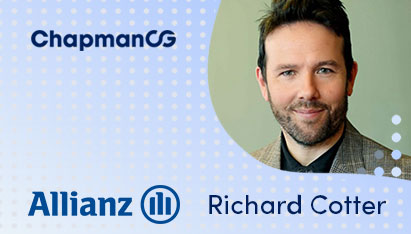Total Rewards is very topical in HR circles today. As a function, it has developed a higher profile than ever before and is closer to the heart of the business than in years past. For these and other reasons, Rewards has become not only one of the most critical HR functions for employers; but also an increasingly appealing career choice for the best and brightest HR high potentials. In this article, I will look at how Rewards careers have evolved, and what ChapmanCG sees as the main challenges and opportunities for today’s Rewards professional.
Rewards Emerges as a Trusted Partner to the Business
The role of the Rewards professional has evolved and developed into far more than the purely data-driven analyst of old. Rewards is slowly becoming an integral part of HR strategy, where once the function was hidden away behind admin and payroll activities. Many companies are now embracing technology and HR Shared Services to take care of the transactional workload, and this has allowed Rewards professionals to engage at a more strategic level, taking on the role of Business Partner and supporting senior HR and business leadership teams. In addition to assessing employee needs in conjunction with those of the overall business and defining effective rewards programmes accordingly, the role of Rewards now also includes developing the relationships required to become a trusted and valued leader within the business. Furthermore, many of the more senior Rewards positions can include responsibilities around governance, compliance, annual report preparation and often performance management, making the role far more complex and involved than in the past.
The Impact of Contemporary Rewards Strategies on Business Performance
In today’s environment, the best Rewards professionals are able to create strategies and programmes that drive high performance across the organisation. Having a solid understanding of the business as a whole, and being able to develop and implement Rewards strategies that benefit the bottom line, are both key to becoming this strategic Business Partner to the senior stakeholders. Forging and articulating the links between Rewards strategies and business results is something that contemporary Rewards professionals are expected to do well.
Total Rewards also plays a significant role in the ‘war for talent’ — when done well, Rewards are able to positon the Employee Value Proposition and related remuneration packages to attract and retain high value, high performing employees. In addition, modern HR structures often call for closer collaboration between HR Business Partners and the Rewards team, ensuring a holistic approach to the retention of key talent.
Regulation and Rewards
Contemporary Rewards professionals need to work harder than ever before on finding the balance between attractive retention plans and responsible pay practices. Due to today’s increasingly strict regulatory environment, the top Rewards roles can often include a large element of governance and compliance, requiring more in-depth knowledge of the local and global regulatory environment. As many companies have found to their detriment, bad press around pay practices that are perceived as irresponsible can affect share prices and profits. As a result, this has made the Rewards role both more complex and higher profile. The top Rewards leaders with deep expertise and a proven track record at the helm of well-managed multinational organisations have become a valuable commodity. Public companies today are under heavy scrutiny, particularly when it comes to executive compensation, and therefore Rewards professionals with heavy compliance experience are also in high demand.
The Complex World of Global Rewards Leadership
The role of the Rewards leader has also evolved in terms of the depth of the management/leadership skills required. Multinational organisations now require deep local market understanding around the regulatory environment, labour laws, and local pay practices. Often the regional differences are complex. US benefits are unique and intricate, and emerging markets in China and Brazil bring their own challenges, so increasingly, companies are looking for a ‘multi-local’ solution. This often requires a team of experts within individual geographies, and an ‘umbrella’ global approach to align the strategies across the varied regional markets. Therefore, the top global Rewards leaders must have the ability to build and manage global teams, in addition to having a good working knowledge of multiple complex geographies.
What Makes a Strong Rewards Leader Today?
As a result of the above factors, today’s Rewards leader needs to be multi-faceted with a much broader skillset than ever before. He or she should not only be data-savvy and technically strong, but must also possess the softer skills in communication and influencing, as well as strategic thinking. In the role of Business Partner, Rewards needs to gain buy-in across all levels of the business, and be persuasive in the boardroom by providing reassurance that he or she can drive the Rewards policies and programmes in close alignment with the needs and goals of the business.
These days, the characteristics of a strong Rewards profile often include a consulting background or someone coming from a professional environment that is known for strong mentoring and high standards in Rewards. The role is still data-driven, but it also requires the capability to use this data to diagnose and present actionable commercial recommendations to a business audience. Here, previous HR Generalist experience can be helpful for understanding the business from a broader perspective. Exposure to multiple regions is also particularly valuable – bringing the ability to think globally and act locally to align and calibrate a global Rewards strategy across diverse geographies.
In Conclusion
It is clear that the Rewards role has evolved and will continue to do so. We are now seeing some of the very best Rewards professionals becoming CHROs, a virtual impossibility a few years ago. There has always been a demand for strong Rewards professionals, and with the added complexities modern organisations are facing, this will only continue to grow. Due to these increased challenges and additional responsibilities within Rewards, combined with a more visible profile within the organisation and the diverse potential career paths, we expect to see Rewards becoming an increasingly attractive choice for high potential HR talent looking for an exciting and fulfilling career option.


 Andrea Merrigan
Andrea Merrigan Orelia Chan
Orelia Chan Stanislav Medvedev
Stanislav Medvedev Fleur Daniell
Fleur Daniell Finian Toh
Finian Toh Tim Rayner
Tim Rayner Nicola Hasling
Nicola Hasling Stefanie Cross-Wilson
Stefanie Cross-Wilson


